Last Updated on July 30, 2021
PLOT: After arriving back home from a movie premiere, couple Malcolm (John David Washington) and Marie (Zendaya) find themselves in an evening of arguing and romance as the foundations of their relationship begin to falter as their insecurities are laid bare.
REVIEW: As far as movies conceived, written, shot and finished during the early days of the COVID-19 pandemic – and in some way, shape or form mean to explore the complicated dynamics between people at a time when human connection has been at its most fragile – Malcolm & Marie isn’t terrible. Written & directed by Sam Levinson (creator of HBO’s Euphoria), stars Zendaya (Recently minted Emmy-winner for HBO’s Euphoria) and John David Washington (Tenet) take center stage as a couple who spend a whole evening fluctuating between rage, love and even rage, and while the many impassioned monologues and heightened emotions give them enough material to showcase their talents, this act of artistry in the middle of a chaotic time acts as proof that watching to people scream at each for an hour and forty minutes is as exhausting as it sounds.
Set over the course of one night in an expensive-looking rented home in the Hollywood Hills – all shot in black and white to give it that sense of bare-bones authenticity — Levinson aims to recall his own cinematic influences from an age of filmmaking gone by, where the driving force of the film are two fiery personalities center stage. We’re introduced to Malcolm, an up-and-coming filmmaker, and Marie, an actress, after the two come back from the wildly successful premiere of the former’s new movie. This early montage of the two arriving back to the house is the only time where the tension between the two is felt but with little being said. Malcolm, ecstatic, dances around the room reveling in the reception and praise for his work. Meanwhile, Marie, still looking radiant, is quietly making him mac and cheese, agitated with her oblivious partner but not wanting to start a fight. Even as he begins to caress and playfully bite her body, she’s not having any of it and is clearly fed up with this man.
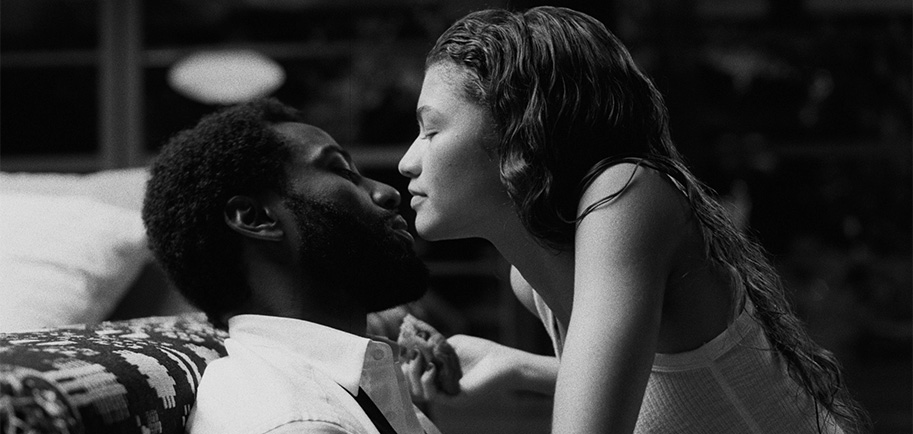
The spark that lights the fuse leading to the inevitable explosion, Marie is upset that Malcolm, who she believes drew all the inspiration for his movie around her life as a recovering addict, and while the quiet tension at the start is far more interesting than the boom that’s about to come, the fighting begins. Based on an argument between Levinson and his wife/producing partner Ashley, wherein he forgot to thank her for her support and insight after the premiere of his movie Assassination Nation, Levinson is using these two characters (especially Malcolm) to air out his own grievances and opinions about the film industry, as well as what insecurities he has internally. As a result, what Levinson intended as using his own life experiences and inward reflections to explore the relationship feels more like the aimless ramblings of a therapy session. The more and more the two go at each other’s throats over art, storytelling, accountability and their general problems with one another, the less and less it feels like anything or anyone, is actually going anywhere. Within the first thirty minutes, it’s not hard to grasp what themes Levinson is trying to explore, and how the problems in a troubled relationship are manifested, but then it keeps going without much rhyme or reason.
Malcolm is a narcissistic, defensive artist, and is in no way likable. He’s the special brand of insufferable ass who fits right at home in a graduate-level English class, or any film school lecture. He spends large chunks of time belittling Marie on her work ethic as an actress and what he assures her are incorrect assumptions about the inspiration for his work. Most obnoxiously, he goes on tangents about how critics are praising his movie, and how he believes his Blackness is at the root of their praise, and not his genuine talent. He prides himself on his film knowledge and throws out titles like Citizen Kane, Do the Right Thing, and Battle of Algiers like he had them loaded and ready to go, and has no problem telling Marie why it is she hasn’t quite had the acting career maybe she wishes she had. Marie, often sitting in silence as he rambles and stomps about, too has her insecurities in regards to how Malcolm views her, not feeling truly loved and appreciated as the woman in his life who is the anchor for both his career and life in general – and how not saying “thank you” is the root of everything.
For what feels like a student film or off-Broadway theatre, Zendaya and Washington are the sole stars of the production. They dive headfirst into this angle of Who’s Afraid of Virginia Woolf, but if Richard Burton and Elizabeth Taylor decided to spare their guests the spectacle and have an evening of fighting at home alone. Their work is passionate, explosive — and during the few moments of genuine love – deeply romantic. Breaking out of the stiffness of the recent Christopher Nolan film, Washington is better than ever, chewing into Malcolm’s thin defenses and rage with the kind of spotlight-stealing showmanship Malcolm believes he has. He has such a firm grasp on who the character is, so even during a quiet moment when Marie is taking a bath and at her most vulnerable he gives Malcolm a constant aura of arrogance, mistaking his obtuseness for being loving and honest.

While the title says Malcolm & Marie, the movie is certainly about Marie. She is the one who goes through emotional growth, and while never not a fighter against Malcolm’s ranting, gets the final, powerful last words after starting the movie trying to avoid the fight. Zendaya continues to prove herself a powerhouse worth her stardom and makes Marie such a force to watch that even in a movie filled with shouted monologues, it’s her silent moments that speak volumes. She’s as transfixing with simply looks of pain or amusement as Washington is with his big speeches. But her Marie is also fierce, never backing down from whatever challenges thrown at her by Malcolm, and it can’t help but feel like she truly gave all of herself to bring Marie to life.
What makes these performances so good is how they even out the balancing act that is the blend of profundity and nonsense in Levinson’s script. There are moments he crafts between them on the page on the script that do an excellent job of shining a light on a tumultuous relationship, brimming with sadness and pain. But then, proving that this could’ve worked better as a short film than a 105-minute film, the soliloquies continue, and the two argue in circles and tap into the same points as they did before, the result of Levinson mistaking an argument he once had at home, and the arguments he likely has with himself most often, equate to a full-length movie. Levinson wants to say so much, and indeed does here, but what his vision lacks overall is coherence and a focus on what he’s trying to convey beyond the blunt conclusion that love is a flurry of hate and passion.
For as frustrating and exhausting so much of Malcolm & Marie is, there’s no doubt that it should be admired for its production. Made to keep artists at work during COVID, and is the final product of people genuinely putting their heart and soul into a project, this is a movie made with love and passion from head to toe, and for that reason, does earn your viewing. There is something admirable in people as undeniably talented as everyone involved here coming together during troubling circumstances and trying to create something beautiful out of them. It’s a shame, then, that the creation isn’t very good. Moments that fall flat do so because they feel vain and almost meta, and when it abandons the examination of love at its core it's in the name of Levinson arguing with himself to no end, leaving two brava performances to stop it from completely washing out into a sea of aimless musings.








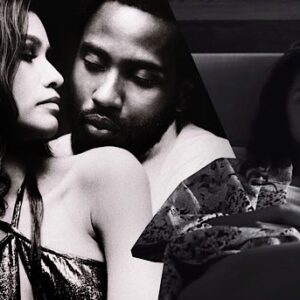
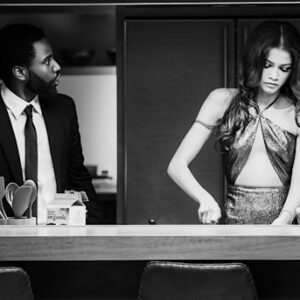
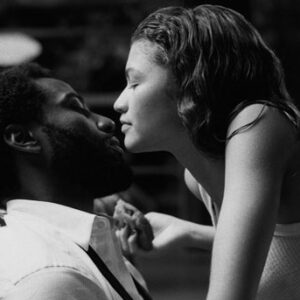
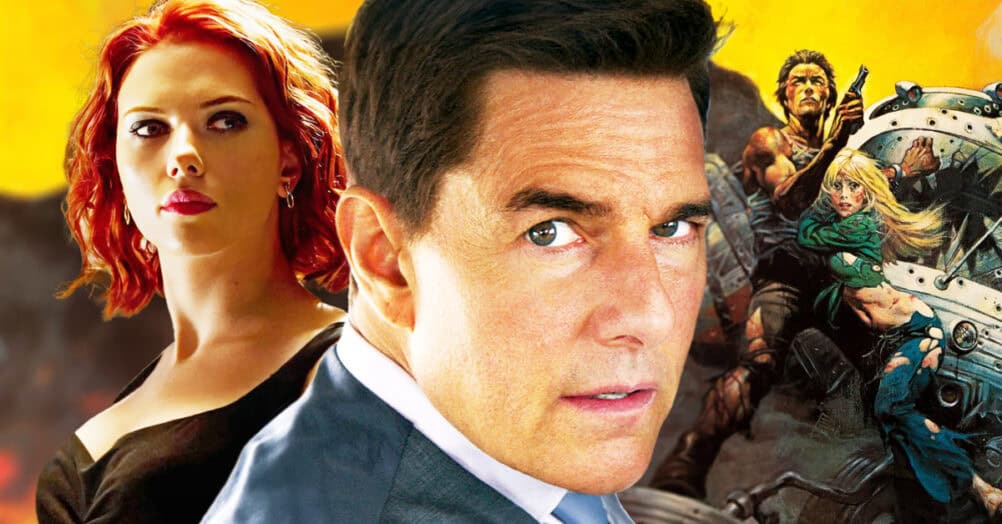
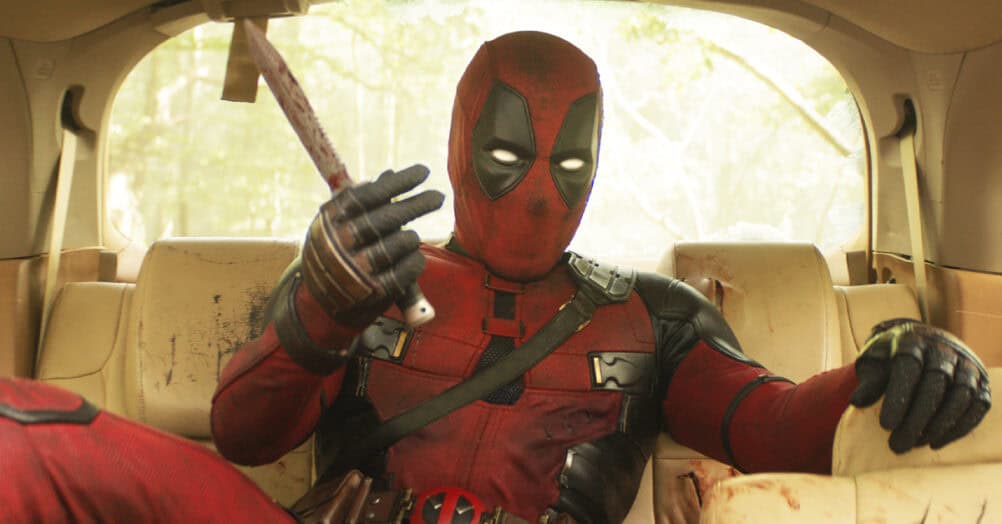

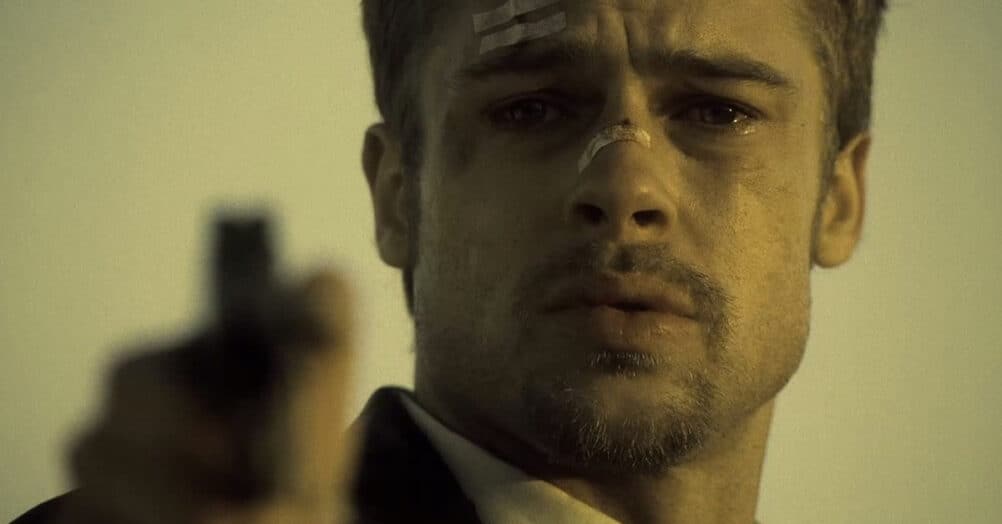
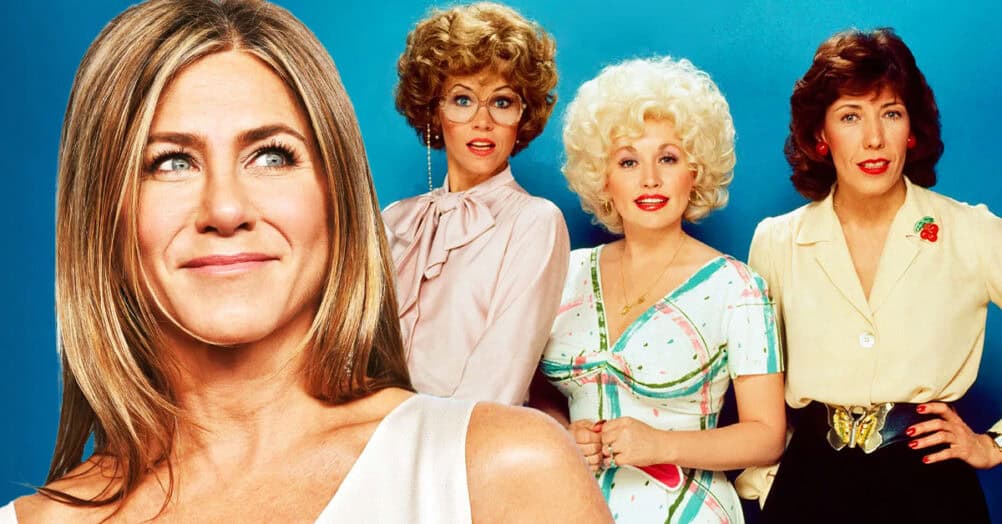
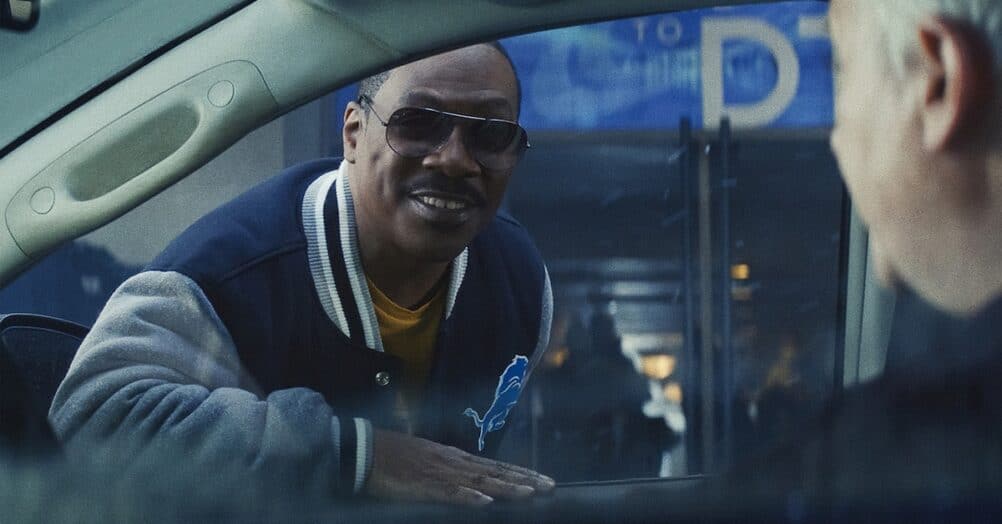

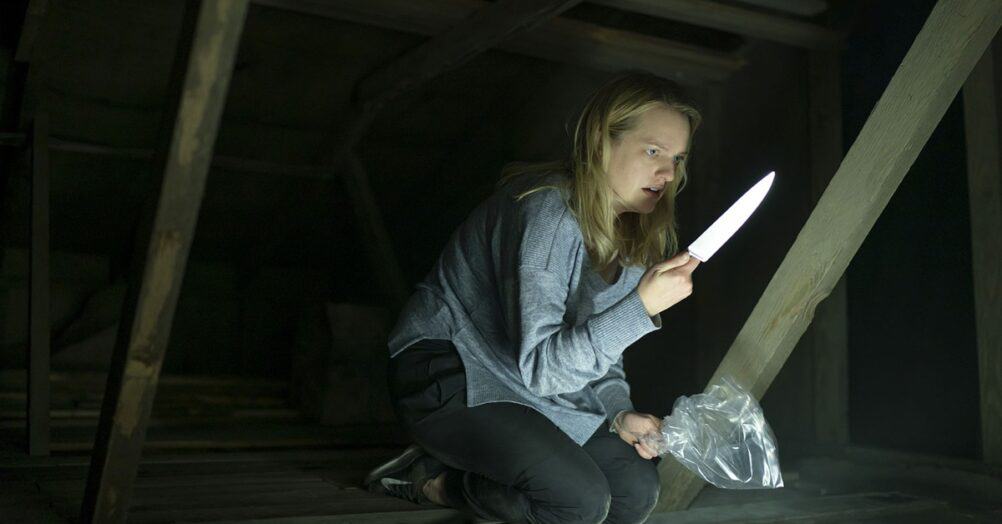


Follow the JOBLO MOVIE NETWORK
Follow us on YOUTUBE
Follow ARROW IN THE HEAD
Follow AITH on YOUTUBE